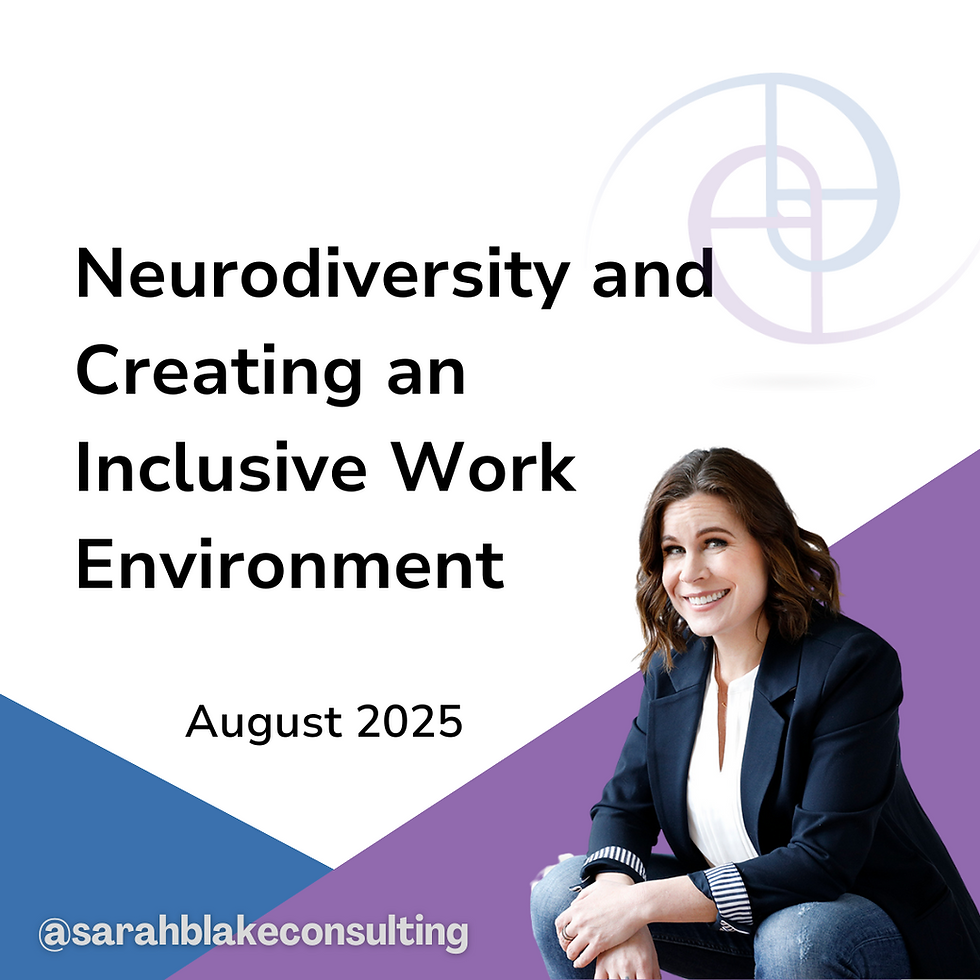Role of Emotional Intelligence in Conflict Resolution
- Sarah Blake

- 20 hours ago
- 3 min read
Emotional intelligence is crucial for managing and resolving workplace conflicts constructively. Those with high EQ can remain calm under pressure, understand different perspectives, and find mutually beneficial solutions. This skill is invaluable for maintaining a harmonious work environment.
Emotional intelligence (EI/EQ) plays a crucial role in conflict resolution, significantly impacting how individuals perceive, approach, and resolve disputes in both personal and professional settings. By leveraging emotional intelligence, individuals can navigate conflicts more effectively, leading to more positive outcomes and stronger relationships.
Key Components of Emotional Intelligence in Conflict Resolution
Self-Awareness
Self-awareness is the foundation of emotional intelligence in conflict resolution. It involves recognizing one's own emotions, thoughts, and triggers during disagreements. Individuals with high self-awareness can:
- Identify their emotional responses to conflict
- Understand personal biases that may influence their perception of the situation
- Recognize how their emotions impact their behavior and decision-making
This awareness allows individuals to address their feelings constructively rather than letting them escalate the conflict.
Self-Regulation
Self-regulation is the ability to manage one's emotions and reactions in a healthy and constructive manner. In conflict situations, self-regulation enables individuals to:
- Maintain a calm demeanor during heated discussions
- Control impulsive reactions that could worsen the conflict
- Focus on finding solutions rather than dwelling on negative emotions
By regulating their emotions, individuals can prevent conflicts from spiraling out of control and maintain a more objective perspective.
Empathy
Empathy is perhaps the most critical aspect of emotional intelligence in conflict resolution. It allows individuals to understand and share the feelings of others involved in the dispute. Empathetic individuals can:
- Recognize and validate others' emotions
- See beyond the surface of an argument to understand underlying concerns
- Build trust and reduce tensions by showing genuine concern for others' perspectives
By fostering empathy, individuals can transform potential confrontations into opportunities for collaborative problem-solving.
Practical Applications of Emotional Intelligence in Conflict Resolution
Effective Communication
Emotional intelligence enhances communication skills, which are vital in resolving conflicts. Individuals with high EI can:
- Express their thoughts and feelings clearly and respectfully
- Listen actively to others without judgment
- Clarify misunderstandings and uncover the real issues at stake
These communication skills help reduce misunderstandings and build trust among conflicting parties.
Conflict Management
Emotionally intelligent individuals are better equipped to manage conflicts constructively. They can:
- Identify the root causes of disputes
- Find common ground between conflicting parties
- Generate solutions that benefit all involved
By applying these skills, individuals can mediate effectively and de-escalate tensions.
Promoting Cooperation
High emotional intelligence fosters a cooperative environment where all parties are more willing to work towards a common goal. This cooperation leads to:
- More stable and satisfying resolutions
- Prevention of future disputes
- Establishment of a foundation of respect and understanding
Long-Term Benefits of Emotional Intelligence in Conflict Resolution
Implementing emotional intelligence in conflict resolution yields significant long-term benefits for organizations and individuals:
- Improved Employee Morale: Employees feel heard and respected, leading to increased engagement and motivation.
- Enhanced Collaboration: A respectful and emotionally intelligent workplace fosters better teamwork.
- Increased Innovation: Employees feel safe to express ideas without fear of ridicule, promoting creativity.
- Lower Turnover Rates: A positive work environment reduces employee turnover.
- Stronger Leadership: Leaders who practice emotional intelligence set a positive example, building a culture of trust and integrity.
In conclusion, emotional intelligence is essential for effective conflict resolution. By developing self-awareness, self-regulation, empathy, and conflict management skills, individuals can transform conflicts into opportunities for growth and stronger relationships. Organizations that prioritize emotional intelligence in their conflict resolution strategies are likely to see improved workplace dynamics, increased productivity, and long-term success.
perplexity.ai helped with this article





Commentaires